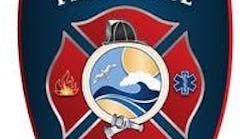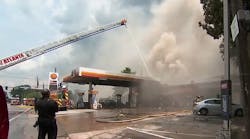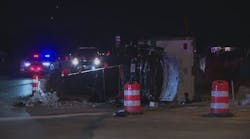No matter what type of department you are a member of – volunteer, combination or career – it should have a designated public information officer (PIO). It doesn’t matter where you are; every place has the potential of becoming the site of a major incident. It could be a large aircraft crashing in a remote cornfield, a train derailing with hazardous materials in the middle of the desert or a large downtown office building on fire – any locale has the potential of becoming a worldwide breaking story.
The PIO is part of the Incident Command System (ICS) command staff and reports directly to the incident commander (IC). Information at an incident works both ways. The PIO will be disseminating information as required by the IC and what many people over look is the PIO should be supplying information to the IC. Many times, the media, citizens and occupants can provide information that may be vital during the incident.
So who should be the PIO? I have worked with and met a number of PIOs from across the country and have seen the qualities they possess. Based on that and my 30 years of experience as a PIO, here are 12 major qualities a PIO should have:
• It should be someone who wants the job. It should not be a forced assignment.
• It should be someone who is available on a regular basis. A person who is out of town much of the time or otherwise not available will be of little help.
• It should be someone who is familiar with the fire service, preferably with a number of years with the fire service, and knowledgeable about terminology, equipment and how the fire service operates.
• It must be a person who is willing to work long hours for an extended amount of time. After the fire or incident is over, the PIO will be working with the media and other people needing information, which may take a long time. It could be days, weeks or even months, depending on the situation.
• It must be someone who can “take the heat.” Being a PIO is an extremely stressful position both at home and on the job. Many times after leaving the firehouse, you will be called or the media may even show up at your home to get an interview. It has a very large impact on your personal life.
• It should be someone who can write. This ability is needed to draft media releases and stories for newsletters.
• It should be someone who knows how to use a camera. The PIO should take photos during incidents or department events for future use. The PIO will see and hear things that many other members of the department will not know. For this reason, they will have to learn that you only release information that is approved for release.
• It should be someone who appears professional at all times. Every PIO represents the entire fire service, regardless of what department he or she represents. Interviews should be conducted in uniform or turnout gear. Always appear at your best.
• It should be someone who is familiar with fire and life safety education. Many times, the PIO will be asked about fire safety issues such as the importance of smoke alarms or the leading causes of fires.
• It should be someone who has a general knowledge of how the news media operate. Knowing how to use social media is a plus.
• It should be someone who can explain things in simple terms. While doing interviews, the media will want quotes in very simple terms, not just yes or no answers.
• It should be a person who has an overall calm demeanor when confronted with stressful and dangerous situations. As part of the command staff, the PIO will be on the front line of situations that may be dangerous and in some cases life threatening. Because the PIO will be at the command post with the IC, he or she may be close or exposed to a hostile environment. PIOs should have access to full protective clothing and breathing apparatus and have been properly trained on how to use it.
I strongly suggest that if you are interested in becoming a PIO, discuss this position with your family. It will impact them as much as it does you. It may cause you to cancel social events or miss special family outings. Be prepared.
More qualifications of the PIO can be found in National Fire Protection Association 1035, Standard for Professional Qualifications for Fire and Life Safety Educator, Public Information Officer and Juvenile Firesetter Intervention Specialist, 2010 edition.
Next: General duties and responsibilities of the fire PIO





